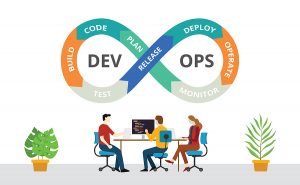Blog
Drive Success with DevOps: 3 Essential Best Practices

Higher quality, faster speed to market, and greater innovation. These three qualities alone spell out why the development world has fallen head over heels for DevOps methodology. Yet, even though a majority of organizations aspire to be great DevOps shops, there’s a disconnect between their ambitions and reality.
In fact, an HBR survey found that only about 10% of organizations achieve successful rapid development. In an era where both consumers and business users expect dynamic performance and functionality from the apps they use, it’s essential for development teams to harness DevOps best practices – or risk hindering their continuous delivery. Based on our experience, here are some of the hallmarks of exceptional DevOps teams.
Looking for DevOps help now?
Implementing Test Automation
For developers in the midst of full throttle coding sprints, manual testing has always been an obnoxious speed bump. Plug onward and they risk redoing large chunks of source code when unit, functional, regression, or other tests detect bugs. Wait and their coding and building phases can screech to a halt, slowing down your overall delivery and release timelines. In short, test automation is necessary to keep your speed to market in a competitive place.
Very few organizations are total strangers to test automation, but the extent of their implementation isn’t comprehensive enough to achieve true continuous delivery. Though test automation varies from team to team, some surveys suggest the average rate of test automation is less than 50%. Clearly, there’s an opportunity for organizations to expand their automation and streamline their operations.
When automated tests are an unconscious part of the SDLC process, there is less disruption to your development team’s flow. There’s no coder involvement unless a build fails the test. Better yet, automated tests can simulate the real-world pressures of thousands of users on your network and application – something that few QA or testing teams can reproduce.
Eliminating Waste
In recent years, the DevOps community has acknowledged the shared goal they’ve had with Lean principles all along: improving the speed and quality of their delivery. Though many teams embrace test automation and other new elements of DevOps, they might find it hard to break old redundant habits. That can slow down your overall SDLC and cause undesirable redundancies in your processes.
Limiting your branching is key to observing DevOps best practices. Ask yourself: How deployable are your builds? If your developers are clinging to Waterfall practices, then there’s a high risk they’re creating branches. When they create too many branches, this can complicate the restoration process if and when a build breaks.
By encouraging trunk-based development or keeping a minimum number of branches with a short lifetime before they’re merged with the trunk, you reduce the likelihood that your DevOps team will sink time into redoing lost code or builds.
Encouraging Buy-In from Your Team
Adopting specific tools or cherry-picking DevOps ideology does not make a DevOps organization. One of the greatest obstacles to DevOps initiatives comes down to culture. In fact, Gartner predicts that 75% of all attempts to embrace this methodology will fail due to a lack of organizational learning and change.
There needs to be a fundamental shift in the development culture. How your team interacts throughout the SDLC, approaches process improvements, and divvies up roles will likely need to change. The newness of this way of thinking requires a conscious effort to implement – and top down support.
There are also going to be hiccups in the process. Some old habits will take conditioning and practice to remove from your team. Pavlov didn’t get the results he wanted just by ringing a bell; he reinforced actions and trained his subjects to perform in desirable ways. While there will need to be active leadership for DevOps change management to succeed, the heightened levels of quality, speed, and innovation will be worth the effort.
Are you ready to integrate DevOps best practices into your own organization? We can help! Evolutyz is experienced at creating a framework that leads to greater quality and faster time to market. Connect with us and we’ll show you how.
Related Articles
What is the Recommended way to Prioritize the Potential Action-Items for the DevOps Transformation?
How DevOps and Cloud Together Can Help Businesses?
5 Best Practices for DevOps Transformation

